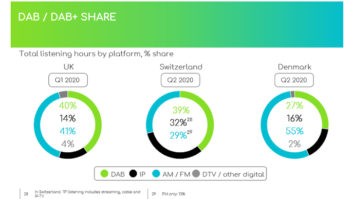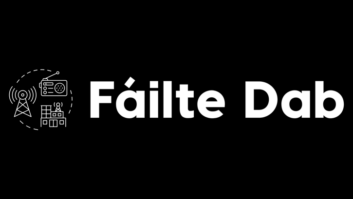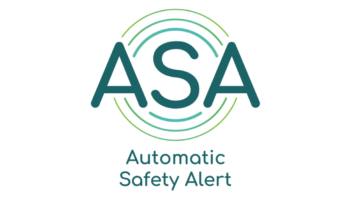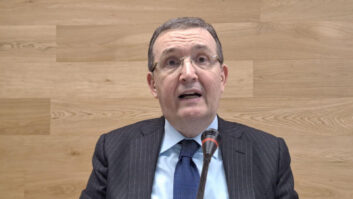The author is president of WorldDAB.

As people around the world are faced with a global pandemic, the full extent of which has yet to be determined, governments are increasingly looking for new ways to keep their citizens informed and out of harm’s way, while enforcing strict stay-at-home regulations.
As one of the oldest communication platforms available, radio has always played a significant role in times of crisis. Today, the role of DAB+ digital radio is more important than ever — keeping citizens informed, and providing some sense of belonging and togetherness to the most vulnerable people who are faced with a lengthy spell of uncertainty and isolation.
HELPING THE MOST VULNERABLE
In this time of crisis, we are seeing more and more ways by which DAB+ digital radio is helping broadcasters address issues such as loneliness, due to long period of social distancing and self-isolation.
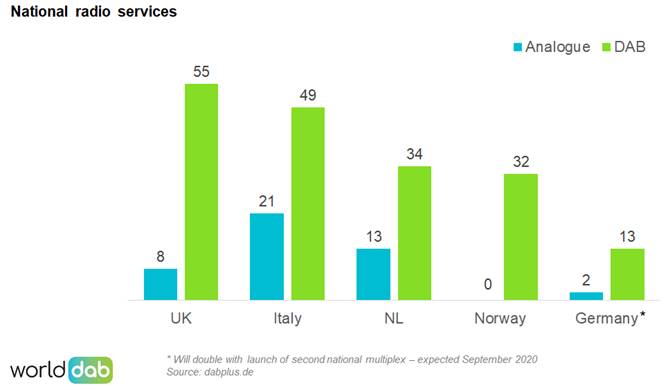
In the United Kingdom, BBC local radio, together with loneliness charity Wavelength, has partnered with manufacturers and retailers to offer free DAB radios to the most vulnerable people aged over 70. This initiative forms part of a broader BBC campaign called Make A Difference. This campaign is running across 39 BBC local radio stations with the goal of connecting communities during the Coronavirus outbreak. In its first five days, the Make A Difference campaign received 28,000 calls.
NEW SERVICES
One of the key benefits of DAB+ is that it offers listeners a wider pool of content to choose from — both on a national level and in specific regions. In the U.K., a new DAB+ service broadcasting important information on the outbreak and spread of COVID-19 has just launched on a number of small-scale multiplexes across the country.
Named Health Info Radio, the DAB+ station broadcasts a mixture of updates on COVID-19 symptoms, myths and social isolation rules and guidelines, as well as interviews designed to help listeners through the national lockdown. Produced as a public service in London, the station is already available in a several major cities across the U.K.
Similarly, in Austria’s capital Vienna, DAB+ is being used to broadcast announcement loops with crucial information related to COVID-19. In addition to the announcements that run continuously in German, there are also several information stations on air in English, Turkish and Romanian, as well as an “Emergency Warning Functionality” (EWF) station broadcasting in Bosnian, Serbian and Croatian.
When on air, the EWF station — a special service dedicated to disasters and matters of the utmost importance — can break into the majority of receivers, including radios that are in sleep mode.
In Germany, the commercial radio station Schwarzwald Radio (Blackforest Radio), broadcast nationally on DAB+, has announced the launch of the first nationwide game night on DAB+. Schwarzwald Radio’s aim is to provide some distraction and boost the morale of German citizens who are currently confined to their homes.
CONGESTED NETWORKS
As millions of people remain confined to their homes, telecoms operators are struggling to cope with the surge in internet and mobile phone usage, and the network congestions that come hand in hand with them.
In Britain, the biggest telecoms companies have set aside their rivalries and launched a national campaign to tell the public how to manage this surge with the hope of reducing congestion. DAB+ does not require internet, and as such, helps alleviate some of the pressure building up on telecoms operators as internet usage continues to grow.
DAB+ allows broadcasters to combine classic content with digital diversity, without the need for internet connectivity, freeing up much needed internet bandwidth. More importantly in this time of crisis, it offers a wide range of news, safety guidelines, tailored information and distractions to the population — both nationally and on a regional level — all much needed at this time.
